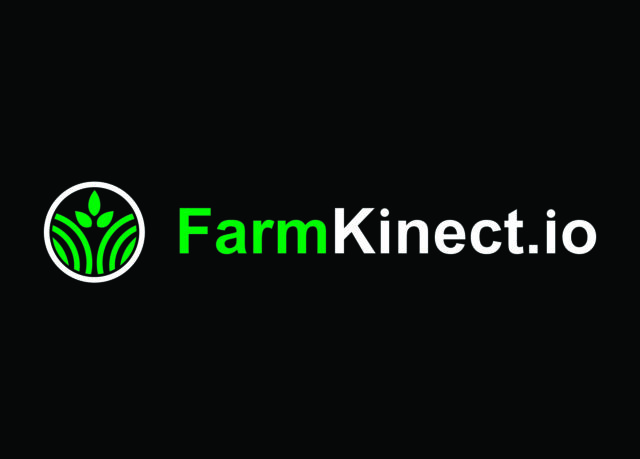With his confirmation coming more than three months after President Donald Trump was inaugurated, Sonny Perdue has a lot of catching up to do.
Perdue, who grew up on a dairy and diversified row crop farm in rural Georgia, was confirmed as the 31st Secretary of the United States Department of Agriculture (USDA) on April 24. With federal budget impasse looming, President Trump indicating he wants to tear up the North American Free Trade Agreement, a need for immigration reform to address agricultural labor needs, and congressional hearings on the 2018 Farm Bill already underway, Perdue’s confirmation delay has shortened the timeline for action.
He’s also being called into to help mediate a dairy dispute between the U.S. and Canada.
On April 1, Grassland Dairy, Greenwood, Wisconsin, told about 75 dairy farmers in Wisconsin and Minnesota the company no longer had processing capacity for about 1 million pounds of milk per day due to changes in Canadian policies, effectively shutting off exports of Grassland’s ultrafiltered (UF) milk.
Through the change in pricing policies under its supply management system, the Canadian dairy industry sought to protect its own farmers by lowering prices for domestically produced dairy ingredients used primarily in cheese production. Those changes made importing dairy ingredients from the U.S. less economical.
For the U.S. dairy industry, the evolving trade war with Canada is of immediate concern as part of a larger export issue.
NMPF urges trade emphasis
“Secretary Perdue knows that dairy farmers depend on export markets around the world and closer to home, which is why it is important for USDA to insist on preserving market access to key customers in Mexico, and demand that Canada plays by the international trade rules to which it has already agreed,” said Jim Mulhern, president and CEO, of the National Milk Producers Federation (NMPF).
Baldwin seeks Wisconsin visit
U.S. Sen. Tammy Baldwin (D-Wisconsin), who voted to approve Perdue as ag secretary, called for him to visit Wisconsin as one of his first administrative actions.
“The first order of business is for the new Agriculture Secretary and the Trump Administration to act on restrictive Canadian trade barriers that are hurting American dairy farmers and processors,” Baldwin said. “We need to make sure that Canada rescinds their unfair policy and plays by the rules. The Administration should also act immediately to assist impacted farmers directly. Following his confirmation, I encourage Secretary Perdue to come to Wisconsin to talk with our hardworking Wisconsin dairy farmers who need a level playing field.”
U.S. Sen. Al Franken (D-Minnesota), who recently met with dairy farmers in Minnesota, pressed the Trump Administration to provide more than “lip service” in the ongoing dispute.
"I'm glad that President Trump has acknowledged the dire emergency that dairy farmers in Minnesota and across the country are facing right now," Franken said. "Minnesota dairy farmers have been hit hard because of new, unfair Canadian trade barriers, and they are rightfully worried about how to make ends meet. I strongly urge the President to move beyond simply saying the right things. We need swift action to help American dairy farmers get through this crisis."
Ontario leaders push back
Canadian leaders continued to support their dairy industry in the face of public pressures from U.S. political leaders.
Ontario Premier Kathleen Wynne and Jeff Leal, Minister of Agriculture, Food and Rural Affairs and Minister Responsible for Small Business, released a statement in support of Ontario dairy farmers and processors:
"The supply-management system allows hard-working Ontario farmers and processors to consistently meet the demand for safe, high-quality products for Ontario and Canadian consumers,” they said. “Our government continues to strongly support the integrity of Canada's supply-management system, both nationally and in Ontario, which has served producers, processors and consumers well for almost half a century.
Wynne and Leal commended Ambassador David MacNaughton and Prime Minister Justin Trudeau for their support of Canada’s supply management program, saying it benefited Canada as well as U.S. dairy suppliers
“Ontario is the biggest customer of 20 states, and the second-largest of eight more. New York and Wisconsin have Ontario as their biggest customer, with Ontario-New York trade totaling $24.8 billion and Ontario-Wisconsin trade totaling $8.2 billion in 2015. Both states enjoy a trade surplus with Ontario, which supports hundreds of thousands of good jobs on both sides of the border. The agri-food sector is a fundamental driver of the shared economic prosperity of Ontarians, New Yorkers and Wisconsinites, with more than $28.8 billion exchanged in Ontario-U.S. agri-food trade in 2016 alone.
The leaders wrote a letter to New York Gov. Andrew Cuomo and Wisconsin Gov. Scott Walker, underscoring the value of that economic partnership on both sides of the border, but warning they will “stand up for the interests of Ontario farmers and processors every time."
Wisconsin organizations issue plea to processors, consumers
In a written plea to dairy processors, heads of the Wisconsin Farm Bureau, National Farmers Organization, Wisconsin Farmers Union and Professional Dairy Producers of Wisconsin sent a letter to dairy processors in the state, asking them to help find a market for the milk displaced when Grassland producers lose their markets on May 1. The letter urged processors to contact DATCP with information regarding processing capacity and any other assistance they can provide.
Wisconsin Department of Agriculture, Trade and Consumer Protection secretary Ben Brancel to buy and donate additional dairy products to local food banks and donate funds to the Great American Milk Drive, which provides vouchers to needy families for purchase of milk (see below).
According to Patrick Geoghegan, Wisconsin Milk Marketing Board (WMMB) senior vice president of corporate communications, the dairy checkoff-funded organization has received an outpouring of inquiries from concerned consumers concerned asking how they can help the dozens of Wisconsin dairy farmers facing lost milk markets.
"Dairy farming has a 160-year tradition in Wisconsin," Geoghegan said. "This trade dispute threatens the families that have worked so hard to build it. WMMB is exploring options with our industry, retail and foodservice partners to help support the affected dairy farmers. But it's no surprise that our state's generous, hardworking residents are reaching out to help, as well."
WMMB reached out to consumers and businesses around the state with a full-page ad in 15 newspapers on April 23, encouraging them to take these actions to support the dairy farm community. WMMB recommended:
• Buy Wisconsin dairy products. This helps provide a market for the milk produced by our hard-working dairy farm families. Look for the Wisconsin cheese and dairy seals on packaging.
• Donate Wisconsin dairy products to a local food bank. Purchase five or more Wisconsin dairy products and donate them to a local food bank. This helps drive demand for dairy and supports local families in need.
• Donate to the Great American Milk Drive. This program provides vouchers to needy families for the purchase of milk. Vouchers are distributed throughout Wisconsin through the Feeding America/Second Harvest infrastructure. Donate online at MilkLife.com/give.
• Help spread the word. WMMB is offering sharable infographics and a temporary social media profile photo in support of Wisconsin dairy farmers on the America's Dairyland Facebook page. More information is also available at AmericasDairyland.com/SupportDairy to help Wisconsin residents encourage family and friends to support the dairy industry.
Wisconsin offers producer, processor loan programs
To address the situation in Wisconsin, Governor Scott Walker announced the Wisconsin Housing and Economic Development Authority (WHEDA) will provide amended loan guarantees with more favorable terms. Announced April 25, the loan guarantees are effective immediately, helping Wisconsin dairy producers and processors access capital to address current market conditions. The changes will provide more favorable repayment and collateral terms to farmers and increased guarantees for producers at lower fees.
Effective immediately, eligible dairy farmers will be able to access loan guarantees at more favorable terms than WHEDA’s current agricultural loan guarantees.
WHEDA’s expanded loan guarantees will be available to dairy farmers and processors through August 1, 2017.
Qualified dairy processors will have access to an 80 percent loan guarantee up to $750,000. Revolving working capital loans offer an 80 percent loan guarantee up to $200,000. WHEDA’s current small business loan guarantees offer a 50% maximum guarantee and slightly higher fees.
Minnesota finds a home for milk
Three processors in Minnesota have stepped up to accept milk from Minnesota farms whose milk buyer gave notice it would no longer take those farms’ milk after April 30. Since the farms received notifications earlier this month, Minnesota Milk Producers Association has worked as a facilitator to raise awareness and connect resources to help resolve the issue. Late Monday, Minnesota Milk received word all 10 producers had found a home for their milk.
“We must thank the Minnesota Department of Agriculture, our state’s federal legislators and especially our processors, who were continuously monitoring milk levels to bring on any milk for which they could find room,” said Dave Buck, a Goodhue dairy producer who serves as Minnesota Milk’s chairman.
“We commend Agriculture Commissioner Dave Frederickson’s office for all its work behind the scenes in making calls and connecting producers. We also thank Senator Al Franken for convening a meeting on the issue Friday,” added Lucas Sjostrom, executive director of Minnesota Milk. “But most of all, we appreciate our processors for doing what they always do -- look for a way to help add value to our state farmers’ milk.”
According to Sjostrom, the situation shows how Minnesota’s dairy cooperatives need better market signals to expand. Expensive regulations, unsteady trade practices worldwide and competing with other industries for labor prevents new investment in milk plants from keeping up to a frantic pace of growth in milk production.
The organization is asking state and federal legislators to do everything they can to help keep the incentives for dairy plant expansion heading in a positive direction.
Spreading to lumber
The trade war reportedly escalated beyond dairy this week, when the Trump administration slapped new tariffs on softwood lumber entering the U.S. from Canada. The U.S. Department of Commerce said it would impose a countervailing duty of between 3 percent and 24 percent on Canadian lumber exporters.
NMPF: Other issues
In addition to trade matters close to hope, NMPF outlined other matters requiring Perdue’s attention.
“We also need Secretary Perdue’s support to help develop new dairy export markets in Japan and elsewhere,” Mulhern said. “As one of every seven tankers of milk we produce is exported, agricultural trade policy plays a central role in boosting the health of the rural economy.
“Secretary Perdue has expressed support for improving the dairy Margin Protection Program so that it can serve as the effective safety net it was intended to be,” Mulhern said. “NMPF looks forward to working with Secretary Perdue and his staff at USDA to improve the tools available to dairy farmers to help manage the economic and natural risks they face.
“We also commend Secretary Perdue on his support – reiterated during his Senate Agriculture Committee hearing – for relieving the obstacles dairy producers deal with when looking to hire workers for year-round labor,” Mulhern said. ![]()
PHOTO: Sonny Perdue, with his wife Mary, takes the oath of office administered by Associate Justice Clarence Thomas. Courtesy of the USDA.

-
Dave Natzke
- Editor
- Progressive Dairyman
- Email Dave Natzke






